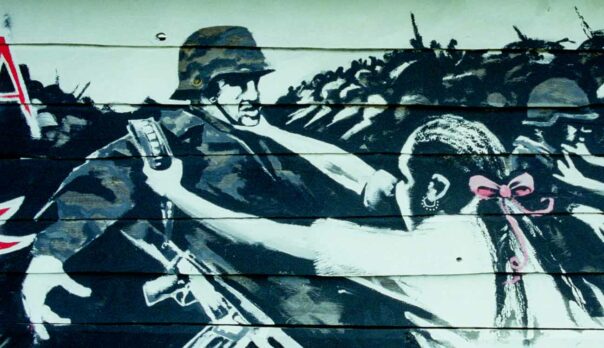
Just over thirty years ago the world woke up to the news that in Chiapas, South East Mexico a revolution had occurred. The Zapatistas rose up in January 1994 against 500 years of injustice and oppression of indigenous peoples, against neo-liberal economics and specifically the Mexican government’s recent signing of the North American Free Trade Agreement (NAFTA). The EZLN (Zapatista Army of National Liberation) entered the largest city in the state, San Cristobal, and briefly took another six towns before, under attack from the Mexican army and airforce, they withdrew back to their strongholds. Over the next few months the Zapatistas threw the landowners out, seized the land and declared themselves to be autonomous communities, creating their own systems of self-government. In the late 1990s eastern Chiapas descended into a low-level counter-insurgency war as the Mexican state responded with force through massive army deployments and proxy-paramilitary groups that attempted to terrorise the Zapatista municipalties into submission.
The Zapatistas became a cause celebre amongst the anti-globalisation movement of the late 90s/early 2000s. A steady stream of activists and international peace observers travelled down to Chiapas to witness what this indigenous social movement had achieved. Amongst these were many people from Bristol, including men and women of the Easton Cowboys and Cowgirls sports club. They participated in a number of solidarity football and basketball tours, and in 2000 set up a separate organisation, Kiptik, to raise money for water, health and essential infrastructure projects in the Zapatista communities. Many Cowboys and Cowgirls would go on to work in the autonomous zones over much of the following decade.
How did they do it? What did they learn, and how did it change their lives? Find out as members of Kiptik discuss their experiences in Chiapas, Mexico.
Event details




